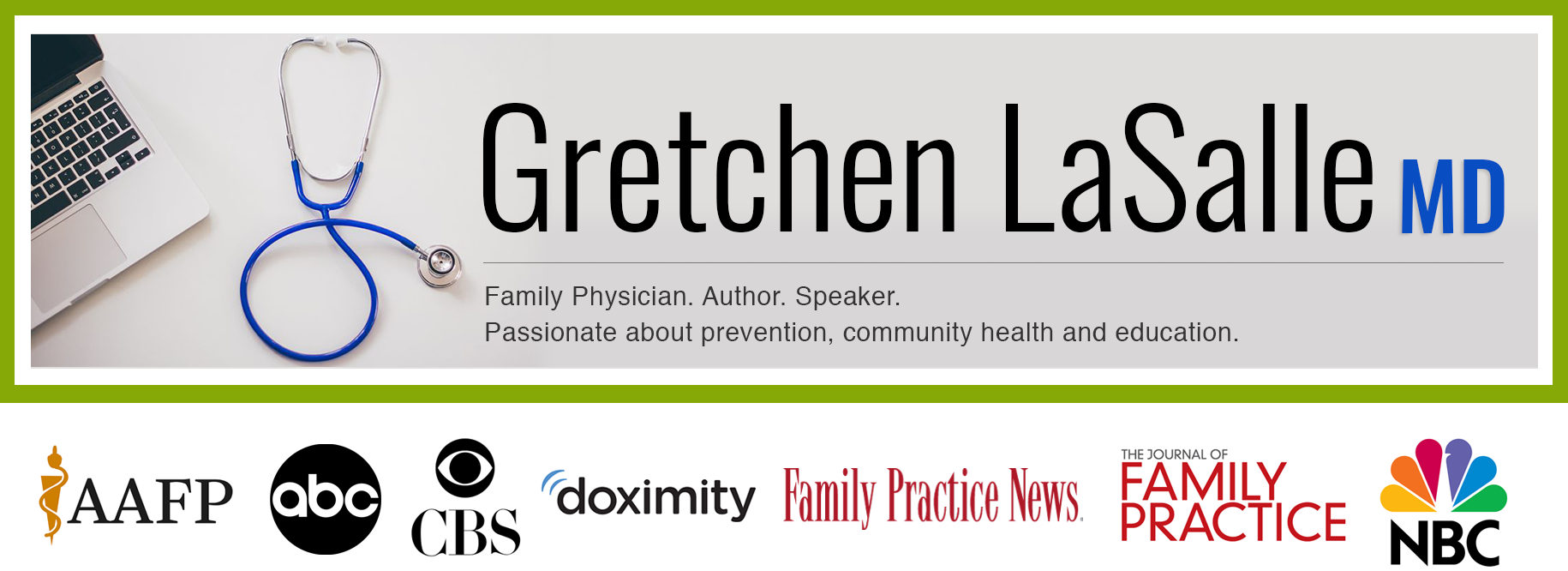As a family physician caring for children and adults alike, I have the frequent occasion to discuss vaccines with my patients. It is common these days for parents and patients to have questions about vaccines. With the ease of access to information on the internet and social media, many people are turning to the web as a healthcare resource. The internet can be a wonderful place to find medical advice, if you know how and where to look, but it can also be a breeding ground for misinformation and fearmongering that even the most savvy of us will fall prey to at some point or another. Sometimes this “fake news” is so masterfully concocted that it can look for all the world like a legitimate news story and the claims that it makes can scare the h-e-double hockey sticks out of us. Fake news stories and testimonials from parents who’s children saw harm from vaccines (at least, this is what the parents believe to be true) tug on our heartstrings and can be hard to ignore. They play on our fears and raise doubts in our minds that take seed, germinate and grow. This is understandable. None of us wants to be the source of any harm to ourselves or to our children. But what I implore you not to do is believe everything you read on the internet. We have to approach information gleaned online with an eye of skepticism. The risks, if we don’t, are too great. Our health and the health of our families is at stake.
I will direct you briefly to a blogpost that I wrote back in February, 2018 titled Making Dr. Google Work for You. It is a quick and easy approach to help us discern whether the information we are reading online is legitimate. Beyond using these tactics, most folks next seek clarity about vaccines by talking to their trusted healthcare provider. The word “Doctor” comes from the Latin word “Docere” which means “to teach”. Doctors are, in essence, teachers. We serve to educate people about their bodies and their health and we are there to help patients wade through the mire of information, some true and some… less than true, that they get on the internet and from friends and family.
In preparing to talk to your doctor or other healthcare provider about your concerns, I’d like to offer some tips that will make the discussion easier for both you and your clinician. First, you should know a few things about your provider that may help you understand the discussion from their point of view.
- Your physician cares deeply about your health and wellbeing. People who choose to go into medicine as a career are generally altruistic, big-hearted individuals. They work long hours, forgoing sleep, personal time, and time with their families to take care of you and your family. So accusations by the staunchest of anti-vaxxers that doctors and other medial providers are elitist, selfish, out of touch individuals who are in bed with Big Pharma to make a profit and cause intentional harm to their patients is, frankly, hurtful and insulting. It leaves a really bad taste in our mouths. Now, on our end, we sometimes have a tendency to lump everyone who expresses doubts about vaccines into the same group, a group felt to be questioning our good intentions, and we can become defensive as a result. As healthcare providers, we need to work against this tendency towards defensiveness. The large majority of our patients do not think that doctors are money grubbing shills. They just want to have their concerns addressed and are trying to make the best decisions they can for themselves and for their families. We should not assume a lack of faith in our training and expertise, just because we are being asked for clarification and reassurance.
- Your physician has dedicated years of their life to training in medicine, including the subject of vaccines and vaccine-preventable disease. Have they done their own scientific studies on the matter? Likely not, unless they also happen to be a researcher. But as with all of science and technology, our progress stands on the shoulders of giants. Thousands of years of observation and experimentation and learning and re-evaluating have gone on before us and our knowledge builds upon this prior work. Similarly, our education regarding vaccines builds upon the study of multiple scientific disciplines: medical history, physiology, immunology, infectious disease, and more. There is no one class in medical school called “Vaccines”. It is a study whose layers are interwoven across academic, laboratory, and clinical practice. We learn about vaccine-preventable diseases in the classroom. We see the devastation they can cause when caring for our patients during our clinical rotations. We see patients, often children and the elderly, suffer and die from diseases that could have been prevented. These losses feel very personal to us – because we cared about those people just as we care about you and your family. To lose any one of you is a tragedy.
- Your physician is stretched thin. Medicine is demanding more and more of its professionals, tasks that often have nothing to do with direct patient care and which take us away from that face-to-face time with our patients that we so highly value, that time that makes the difficult life we have chosen worthwhile. Appointment times these days generally range from 10-60 minutes, depending on the specialty and depending on the issues being addressed, the majority falling in the 15-30 minute range. We doctors and other medical providers want to be able to answer all of your questions and concerns but we also have to use these precious few moments to address your active medical issues – like diabetes, or high blood pressure, or depression. If we seem rushed, we don’t mean to be. We are just trying to fit it all in. Trust me, we wish we had more time with our patients just as much as patients wish they had more time with us.
So, with all of this in mind, what can you do as a patient with questions and concerns about vaccines to facilitate an informative and amicable discussion with your doctor? I propose the following:
- Schedule an entire appointment with your provider just to talk about vaccines. Throwing concerns at your healthcare provider, which they want to be able to take the time to discuss, at the end of a visit that was scheduled for another reason will only leave them frustrated and will put them even further behind in their day, a fact which their future patients will not appreciate.
- Ahead of that appointment, send them a note with a list of your questions and concerns. Give them plenty of time to be able to review the note and find responses (I would recommend at least 1-2 weeks ahead of the appointment). After you send the note, call the office to make sure that it arrived and has been seen by your doctor. If you have resources you are using upon which your concerns are based, please let the doctor know these as well so they can see exactly where you are getting your information.
- When it comes to appointment day, please arrive to your appointment early. In order to have every minute of that appointment time available to answer your questions, your doctor needs you checked in and roomed BEFORE your scheduled appointment time.
- Approach your doctor or other medical provider with respect and an open mind. They are trying to hear and understand your concerns and they should be due the same courtesy in return. We all should be cognizant of the fact that sighing and eye rolling, as well as defensive or aggressive posture, only serve to build walls between us instead of bringing us together. We, as physician and patient, need to remember that we both want the same thing – to keep you, your family, and your community healthy.
- If all goes well, and each party in the discussion feels listened to and understood, we should be able to maintain a strong relationship going forward. This can happen even if we ultimately have to agree to disagree. And if your doctor continues to offer vaccines at future visits, it is not because they don’t respect your opinion. It is because they know that people change their minds. Events happen in life that cause us to reevaluate our stance. We will continue to offer vaccines because we care about you and we want the same excellent care for you that we expect for our own families – and protecting our loved ones from potentially deadly illnesses by administering vaccines is a big part of that care.
If we continue to listen without judgement and try to learn what motivates the other person, vaccine discussions don’t have to be the frustration-laden affairs that they often are today. Keeping the lines of communication open is key to mutual understanding over time.


This is fantastic advice that will help patients be more successful in getting all their questions answered.
Thanks, Melissa. And congrats on your site. You are doing some pretty amazing work!